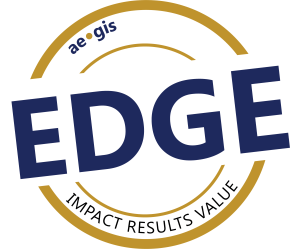For the past 25 plus years, I have been accused of making up words that fit a particular phenomenon or situation.
Guilty as charged. Not even remotely sorry.
Possiblitarian (sees the possibility in everything) is my favorite. Nocturnalist (late worker). Clouder (someone who muddies every issue with volumes of crud). Fauxcoach (fake helper). Hypercontrarianism (opposes everything/all the time). Employoration (decorative employee that contributes little but has a great looking title/office). Strategery (borrowed from President G. W. Bush). Painfully, those closest to me have to learn these strange combinations and be on the lookout to call out new ones.
Recently, I have had the opportunity to talk with and observe several people who are entrenched in survival mode. They work every day. They pay their bills. They move from Monday to Friday in a kind of zombie-like precision of sameness. Counting days until retirement vesting. They are surviving.
Don’t get me wrong; surviving is better than the alternative, but it is certainly not a great place to hangout for an extended period. Humans are built for more than just survival and sameness. We are wired for much, much greater things.
Which brings us to a new word: Thrival.
Thrival is creating an environment in which we are thriving or prepared to thrive. Thriving is utilizing all of our capabilities, abilities, talents and emotion in doing something we want to do, not have to do. We will always have “must dos” but directing them to a goal or desire will convert them into a part of thriving and not merely surviving.
Thrival is also a mindset. Mindset are complex sets of beliefs, thoughts and attitudes that have a big impact on behavior. A positive mindset will eliminate many self-defeating behaviors and create a path for desired outcomes. They are also the antidote for negative cognitive biases.
So the real challenge is how to move from survival to thrival. This part is going to take a little work and dedication, but it is highly doable and all of us can accomplish these steps:
- Purpose
What do you want to do? What makes you happy? What are you good at? What really inspires you and lights an internal fire in you? Where is your passion? What do you want to be when you grow up?
These are the questions to establish purpose. Purpose is the target of thrival. Ultimate thriving is the ability to live your purpose. Once a purpose is established and visualized, you are well on your way to having a thrival mindset.
Dare to be great. Dare to do what you want to do. Dare to live the life you deserve and have dreamed about. Dare to become the awesome human you are designed to be.
- Visualize and Mind-Manage
The most difficult part of this process is to manage your own thoughts throughout this process. The “can’ts”, “won’ts”, “nevers” and even worse will try to creep back into your mind. These little creeps must be drowned out immediately and aggressively. See your dream with clarity and order your self-talk to be supportive and encouraging.
- Alignment
A tougher analysis is looking at your daily activities and see how many align directly with your purpose. Not all will but most should eventually. The process of aligning activity with your purpose may also require that you set aside blocks of time to work towards your purpose and eliminate some activities that don’t connect and never will. Explore options of some required tasks (outsourcing, delegating). Create a chart of activities and draw lines to your purpose/thrival statement.
- Execution and Support
Now get to it. Create a date certain and commit to living a life of thrival and not just surviving.
You will also want to take a critical look at the people around us. Make sure they are encouragers and not naysayers. Yes, to live a life of thrival, your tribe may have to change a bit.
Best wishes on becoming a thrivalist (oh cool, another new word) and I look forward to hearing about your ongoing success.






























 Tim Schneider is the founder of Aegis Learning and has been working with teams and leaders for 25 years. He generates results, impact and his sole focus is your success.
Tim Schneider is the founder of Aegis Learning and has been working with teams and leaders for 25 years. He generates results, impact and his sole focus is your success.
